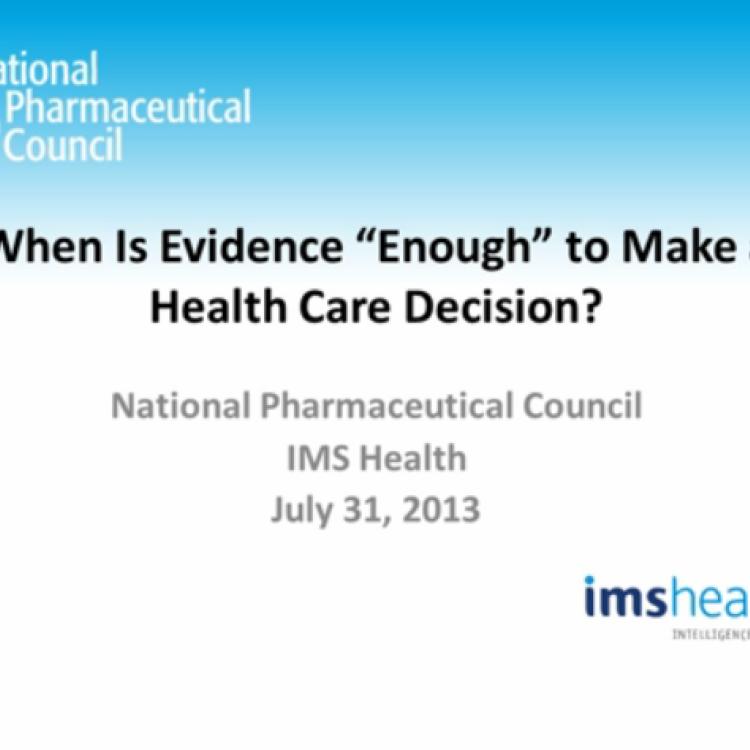When Angelina Jolie announced recently that she had the BRCA1 gene and decided to undergo a double mastectomy, it made headlines around the world. The news also generated enormous awareness and interest in genetic testing, breast cancer and mastectomies, and women's health, as evidenced by the surge in social media conversations and web searches on these topics.
Whether this news will change health behaviors or treatment decision-making remains to be seen, but it's clear that media plays a role in whether new data, or evidence, is put into clinical practice. According to research from the National Pharmaceutical Council, media is one of five influential factors that affects how quickly health information is adopted and applied by medical decision-makers.
Separately, real-world evidence (RWE) is increasingly influencing how payers are covering pharmaceutical products around the world. A report from IMS Health outlines some of the factors for the adoption of this evidence and why some countries are embracing RWE more readily than others.
Authors of both studies discussed the influencing factors behind the adoption and application of evidence and responded to questions during a webinar on July 31, 2013. They included:
- Robert W. Dubois, MD, PhD, Chief Science Officer, National Pharmaceutical Council
- Ben Hughes, PhD, Senior Principal Real World Evidence Solutions, IMS Health
- Marla Kessler, Vice President, IMS Consulting Group
- Eleanor M. Perfetto, PhD, MS, Professor, Pharmaceutical Health Services Research, School of Pharmacy, University of Maryland
